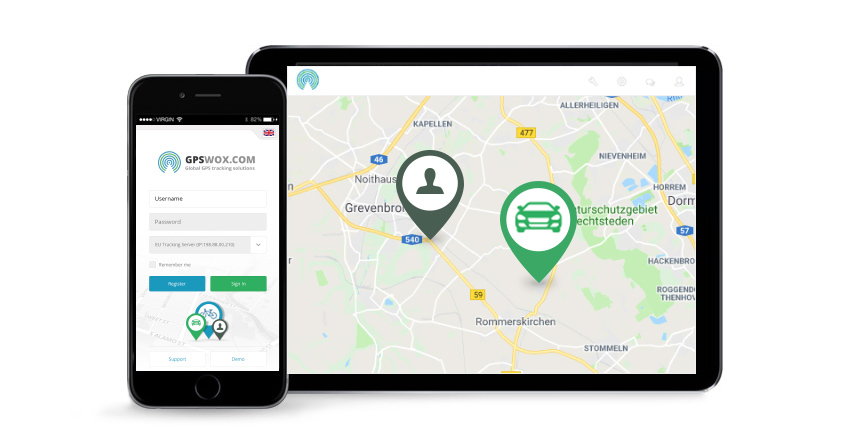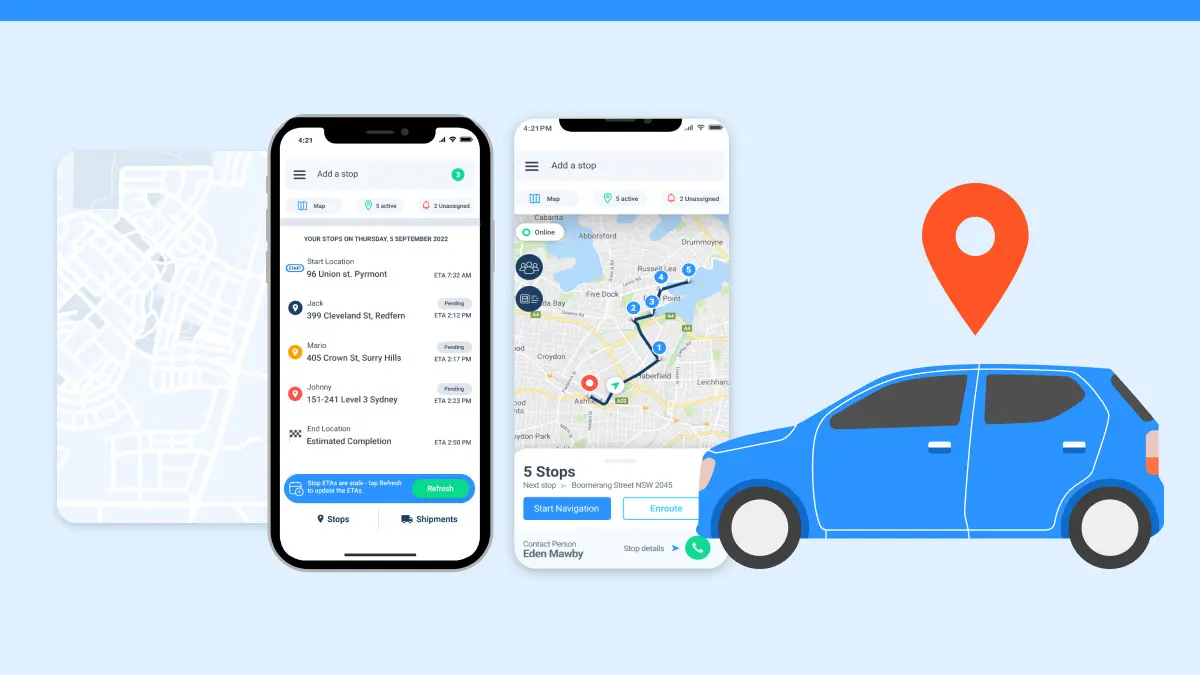Advanced GPS Tracking Systems: Maintaining Your Assets Protect
Advanced GPS Tracking Systems: Maintaining Your Assets Protect
Blog Article
Browsing the Future of GPS Tracking: Advancements, Challenges, and Opportunities Ahead
As we stand at the crossroads of technical improvements and social effects, the landscape of GPS monitoring is poised for a transformative trip ahead. The development of GPS innovation has been quick, ushering in a brand-new age of real-time tracking abilities that guarantee unprecedented degrees of accuracy and effectiveness. Nevertheless, with fantastic innovation comes terrific responsibility, as information personal privacy concerns loom huge and protection difficulties in GPS monitoring raising pertinent concerns concerning protecting sensitive information. Yet, amidst these obstacles exist concealed chances waiting to be checked out, providing a glimpse into the untapped potential of a market at the edge of modification.
Evolution of GPS Innovation
Created for military objectives, General practitioner technology has progressed to become an ubiquitous device in various fields, consisting of transport, logistics, farming, and personal navigation. Early GPS systems were characterized by restricted coverage, reduced precision, and bulkier equipment requirements.
One trick turning point in the advancement of GPS technology was the growth of Discerning Schedule (SA) in the 1990s, which purposefully degraded the accuracy of noncombatant general practitioner signals. The discontinuation of SA in 2000 substantially enhanced GPS precision for civilian customers. Subsequent improvements, such as the deployment of extra satellite constellations like Galileo and BeiDou, have better enhanced GPS protection and precision, making it an indispensable tool in everyday life. As GPS modern technology remains to progress, we can anticipate additional enhancements in precision, insurance coverage, and efficiency, opening up new opportunities for advancement and applications across numerous markets.
Real-Time Monitoring Advancements
Building on the improvements in GPS modern technology that have actually reinvented precision and insurance coverage, real-time monitoring has emerged as a critical location of innovation with extensive effects throughout numerous sectors. Real-time tracking developments make it possible for companies and services to monitor cars, assets, and employees immediately, supplying beneficial understandings for decision-making procedures - gps tracking. By leveraging real-time data, business can enhance operational effectiveness, enhance consumer solution, and make sure the safety and safety and security of their properties
Among the key improvements in real-time tracking is the assimilation of expert system and artificial intelligence algorithms, which enable predictive analytics and anomaly discovery. These abilities permit for proactive upkeep organizing, path optimization, and threat mitigation techniques. Furthermore, the development of real-time radar has led to the advancement of customizable dashboards and mobile applications, equipping customers to accessibility crucial info anytime, anywhere.
Information Privacy Issues

Data privacy worries encompass different facets, consisting of the storage, sharing, and retention of area data. Companies should execute robust safety and security actions to shield GPS tracking data from cyber dangers and information violations. Clear plans pertaining to data collection techniques and the function of tracking are necessary to build trust fund with customers and ensure conformity with information security regulations.

Safety And Security Challenges in GPS Tracking
Resolving data personal privacy problems in GPS tracking is intricately connected to alleviating the safety and security tests that emerge from possible vulnerabilities in the technology. One of the main safety obstacles in GPS tracking is the risk of unapproved access to delicate location information.
One more safety and security obstacle is the possibility for jamming or spoofing General practitioner signals. Applying durable encryption, authentication procedures, and signal verification procedures are crucial steps in attending to these safety obstacles Continued in GPS tracking.
Arising Opportunities in the Sector
The expanding area of GPS tracking modern technology presents a myriad of promising chances for market growth and innovation. One key opportunity hinges on the development of general practitioner tracking applications beyond conventional markets. Industries such as logistics, transportation, and fleet management have been early adopters of GPS innovation. Arising chances are now emerging in areas like health care, farming, and environmental tracking. GPS monitoring can transform person treatment by making it possible for remote surveillance of essential indications and guaranteeing prompt medical help. In agriculture, general practitioner technology can optimize crop administration practices and boost overall yield. Moreover, environmental tracking can gain from GPS monitoring by making it possible for real-time data collection for climate study and conservation efforts.
In addition, the raising need for connected gadgets and IoT solutions offers a ripe opportunity for General practitioner tracking companies to increase their offerings and create ingenious remedies that provide to a more linked world. By exploiting on these arising chances, GPS monitoring firms can position themselves for continual development and success in the dynamic landscape of the industry.
Final Thought
To conclude, the future of GPS monitoring is noted by constant evolution and advancement in modern look at here now technology. Real-time tracking developments and emerging chances existing appealing potential customers for the industry. Data privacy worries and safety obstacles remain considerable hurdles that require to be dealt with. As the market moves on, browsing these difficulties will be critical to ensure the ongoing growth and success of general practitioner monitoring innovation.
With terrific innovation comes terrific responsibility, as data personal privacy problems loom large and protection difficulties in General practitioner monitoring raising essential concerns concerning securing delicate info.With the fast spreading of General practitioner monitoring modern technology in numerous sectors, dealing with data privacy worries has become a vital imperative for both organizations and consumers alike. The collection of area data through GPS tracking elevates substantial personal privacy problems, as it enables the tracking of people' movements and behaviors. Companies utilizing General practitioner monitoring have to prioritize safeguarding this information to prevent unauthorized access or abuse that might compromise people' privacy rights.
Organizations have to apply durable safety and security measures to safeguard General practitioner tracking information from cyber risks and information violations.
Report this page